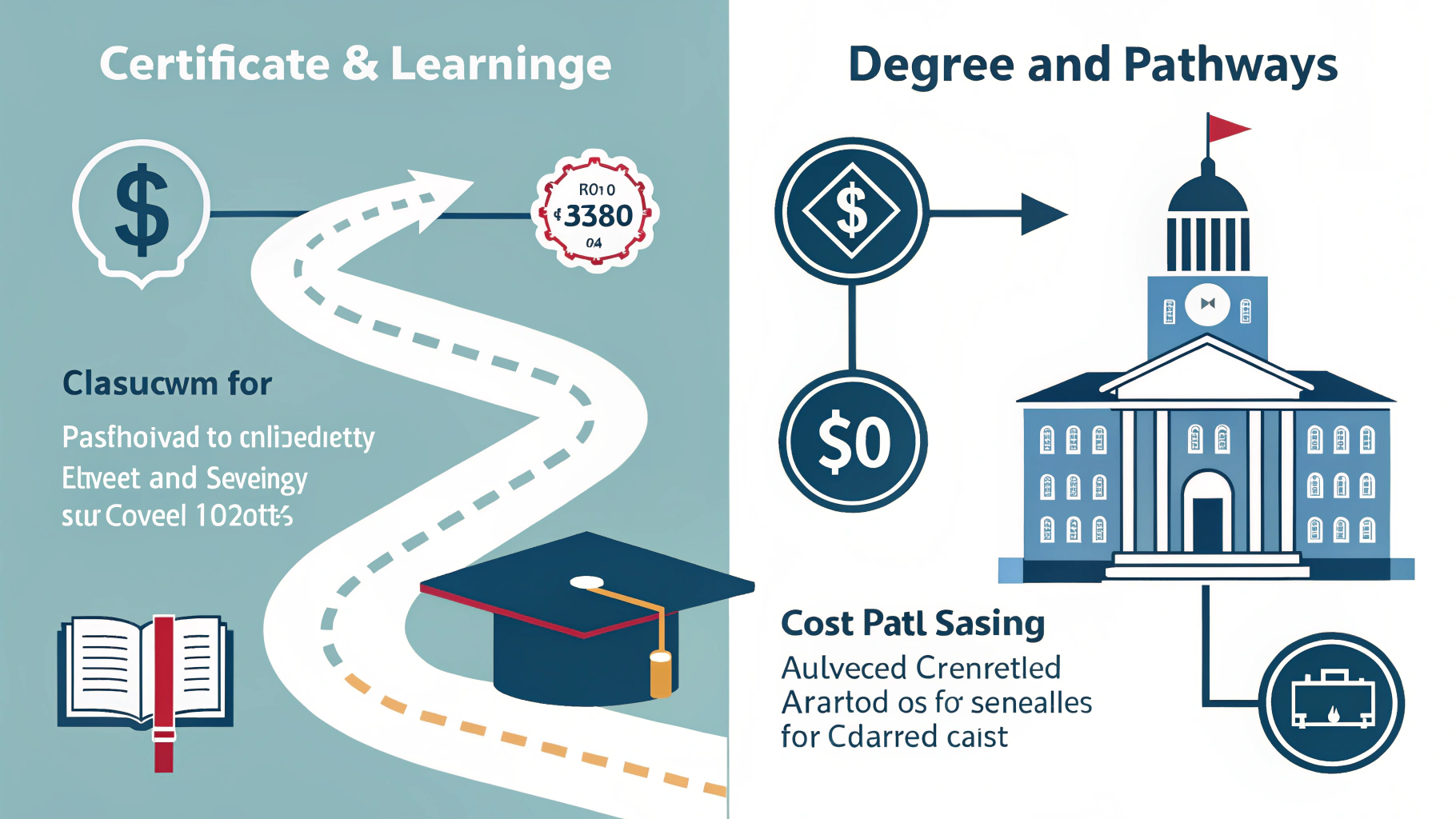Trade school programs boast an impressive 81% employment rate within six months of graduation, making them an attractive fast track to stable careers. But does quicker always mean better? From dental assistants mastering tools in 10 months to welders refining techniques over two years, program lengths shape career trajectories in ways many learners underestimate. So what's the real difference between earning a certificate versus going for an associate degree in today's skilled trades? Let's break down how these choices play out in the real world and what they mean for your long-term prospects.
How Trade School Programs Balance Depth and Speed
Trade education duration splits into two distinct paths: short-term certificates (6–18 months) and associate degrees (18–24 months). Each caters to different priorities—immediate income versus long-term growth.
Short-Term Trade Certificates: The Express Lane
Designed for rapid job placement, these programs focus on precise technical skills. For example:
- Nail Technology: 5 months in California (varies by state licensing) 1
- HVAC Technician: 12 months with EPA 608 certification 2
- Commercial Truck Driving: 4–6 weeks for Class A CDL 3
 Full-time students typically finish 30–50 credit hours in under a year. Workforce analyst Mark Lyson explains:
Full-time students typically finish 30–50 credit hours in under a year. Workforce analyst Mark Lyson explains:
“You are learning employer-specific competencies. No electives, no abstract theories” 4.
Associate Degree Trades: The Strategic Route
These two-year programs offer hands-on training and courses like math and communication. Fields like dental hygiene require associate degrees for licensing 5. A welding diploma might take 14 months, while an Associate of Applied Science in Welding Technology spans 24 months, adding blueprint reading and metallurgy.
 3 Hidden Factors That Extend Timelines
3 Hidden Factors That Extend Timelines
- Clinical hours: Medical assisting programs add 200+ externship hours 6
- Part-time enrollment: Stretches completion by 30–50%
- Prior credits: 15% of schools offer acceleration for military/service experience 3

Curriculum Design: Skill Specialization vs. Broad Training
Trade school programs prioritize either targeted expertise or adaptable career foundations.
Job-Specific Focus in Certificates
Electrician certificates emphasize circuitry and National Electrical Code mastery over general education.
“We replicate real service calls starting week two,” says instructor Carla Mendez 8.
 Versatility in Associate Degrees
Versatility in Associate Degrees
Auto tech associate programs often include business management courses, which are critical for aspiring shop owners. This broader training explains why 89% of associate degree credits transfer to bachelor’s programs versus 3% from certificates 9.
Hands-On Training: Where Rubber Meets Road
Practical learning accelerates skill mastery while condensing timelines. Diesel tech students spend 80% of training disassembling engines, which is a method proven to triple retention versus lectures 10. Apprenticeships merge earning and learning. For instance, union electrician trainees make $21/hour while logging 2,000 annual training hours 11.
 John T., a 2024 HVAC graduate, exemplifies this blend:
John T., a 2024 HVAC graduate, exemplifies this blend:
“My certificate landed me a job in three weeks. But when I upgraded to an associate degree, I could bid on commercial projects that doubled my pay.”
Career Outcomes: Urgency vs. Growth Potential
Trade school programs deliver strong employment rates but divergent long-term paths.
Short-Term Certificates: Quick Entry, Quicker ROI
- 94% of CDL certificate holders secure trucking jobs within six months
- Medical coding certificates show 10-year returns of $448,000 12
- Average starting salaries range from $28,000–$45,000 depending on field
- Limited advancement opportunities without additional training
Associate Degrees: Building Career Foundations
While associate degree programs take longer, they often lead to better long-term outcomes:
- Starting salaries typically 15–25% higher than certificate holders
- Greater promotional opportunities and supervisory roles
- Higher job security during economic downturns
- Better preparation for specialized certifications and continuing education
Take dental hygienists as an example—they require associate degrees and earn a median salary of $77,090, compared to dental assistants with certificates who earn around $41,180.
Speed vs. Substance
Tade school success comes down to alignment with your goals and financial situation. Certificates deliver rapid job placement and targeted skills, while associate degrees build broader foundations for long-term career growth. Both paths beat traditional four-year degrees on ROI, with lower debt and faster earning potential. Do you need income now, or can you invest extra time for greater future returns? Either way, you're choosing a recession-proof career built on practical skills that can't be outsourced, and a future that values what you can create with your own hands.

